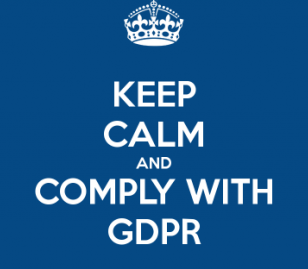Developed by the PCI Security Standards Council, the PCI DSS compliance aims to reduce card payment fraud. Any organisation that handles credit or debit card data is required to comply with it. Compliance is validated by a certified security assessor, or for companies that process smaller volumes of data, by a self-assessment questionnaire.
These standards were established to ensure the protection of data and personal information, to help prevent credit card fraud and to avoid costly data breaches. Compliance with PCI DSS standards does not mean that you will not have a data breach, but that in the event of one, credit card companies will support you.
To be PCI compliant, companies must consider these regular activities:
– Building and maintaining a secure computer network
– Protecting customer data
– Maintaining a vulnerability management program
– Reinforcing access controls
– Regular testing and monitoring networks
– Keeping an open security and information policy
If you accept credit card payments, the payment card industry’s security standard must be fully integrated with your e-commerce service. That’s why issuers and acquirers are responsible for ensuring that all of their service providers and merchants comply with PCI DSS standards.
What would you risk in the event of non-compliance?
By applying the PCI DSS standard, your company is letting its customers know that it is taking the necessary measures to protect their credit card data against theft and any fraudulent use on the Internet. The consequences of a cyber-attack do not only fall on users but also on the company in question: loss of customer trust, fines, loss of revenue and a significant negative impact on a company’s brand image.
Moreover, in case of non-compliance, your ability to accept credit card payments may be suspended or revoked. Failure to comply with this e-commerce requirement may result in data breaches, loss of trust and even termination of the agreement that allows you to receive card payments.
PCI compliance is getting increasingly relevant with the rise of digital payments
With digital payments, authentication and security are essential criteria. In fact, the possibility of fraud is way higher with digital payments than with in-store card payments. Companies are therefore required to have fraud detection systems and effective tools to validate and authenticate cards.
Consumer vigilance has been particularly important in recent years, and sellers have had to keep up with nowadays expectations and requirements in order to maintain their consumers’ trust. This increased vigilance has prompted sellers to take the necessary measures to ensure the security of their remote payment method.
This has been made possible above all by the introduction of new security features that strengthen user confidence, such as removing customer card details from your network, e-wallets and online portals payment solutions. These solutions enable organisations to encourage long-term relationships, with features such as repeated automated payments and avoid refunds by offering e-wallet top-ups to customers. These modern features improve customer experience whilst ensuring the absolute security of the payments.
Other methods have been implemented to reinforce payment security:
- Visa and Mastercard have developed the 3-d security protocol which adds an additional step in the authentication procedure. Your bank then decides its format; it could be a text sent to your mobile number, an automated call from your bank to your personal number, a private password set-up in advance, etc.
- A new type of card was created, these cards have a changing three-digit card verification value. After each use, this innovative card will produce a new CVV to protect the user from any card fraud.
- Sellers can also use of a third-party website that requires a password, such as HiPay and PayPal. The advantage of these systems is that users’ payment data won’t be known by the merchant.
Every business handling payment data must prioritise PCI DSS compliance, in order to make their customers feel that their financial information is being fully protected.
C3 is known to be one of the UK’s leading PCI specialists. C3’s effective PCI-DSS compliant solutions are simple to implement and ensure complete security for your customers, preventing any possibility of fraud. Do not hesitate to contact us to find out more, we’ll be happy to help you with your specific project.



